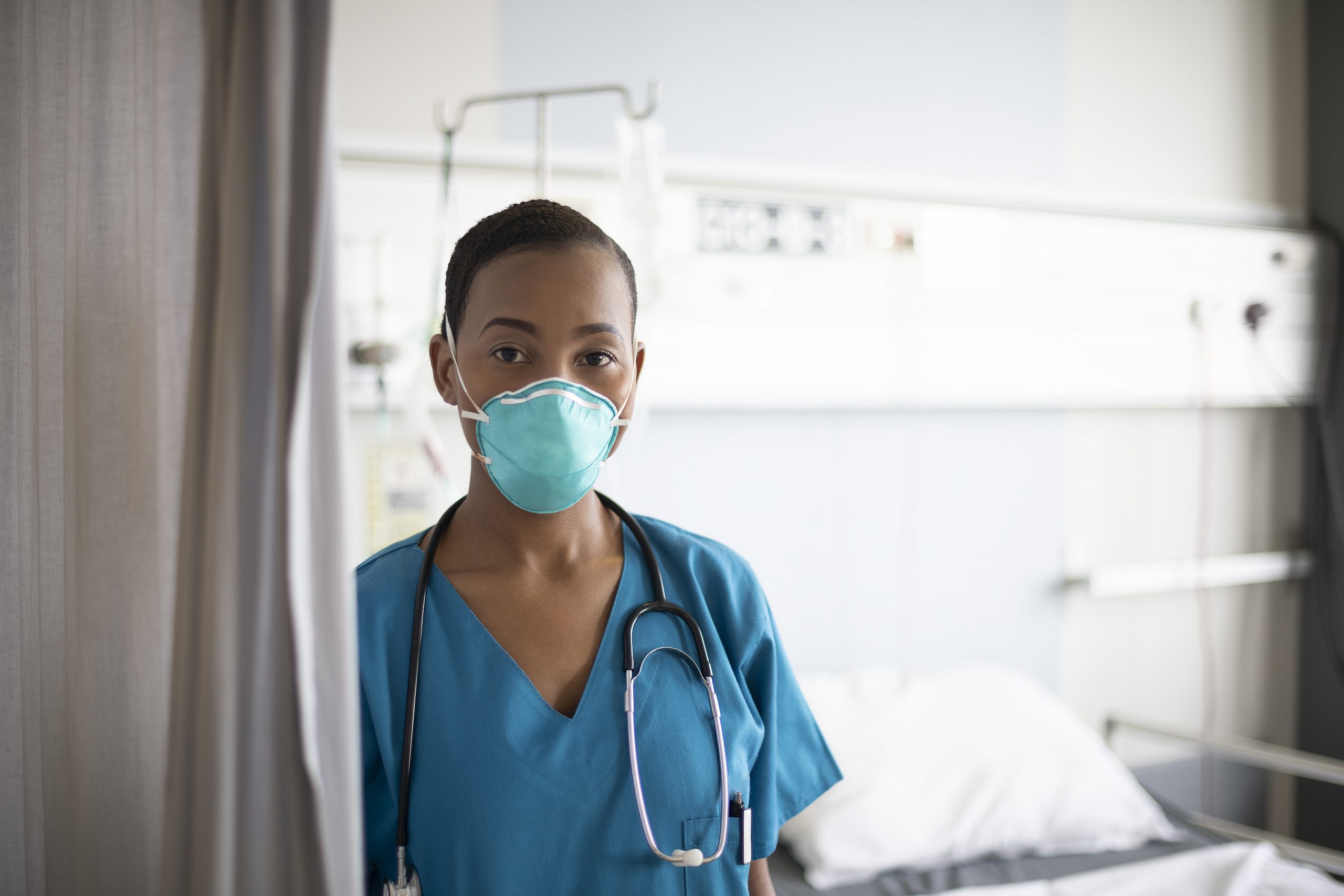Fourth in a series for #16Days of Activism Against Gender-based violence, by John Coonrod.
In 1948, the world signed the Universal Declaration of Human Rights, declaring that everyone had a right to equal access to public services (Article 21) and to adequate medical care (Article 25). Seventy-years later, one quarter of the world, and nearly half of all Africans, lack access to primary health care (WHO 2020). In 2019, the UN General Assembly issued a political declaration called for speeding up progress. Feature photo: iStock/JohnnyGreig.
This failure to provide even the most basic services is a deadly failure, resulting in more than 250,000 maternal deaths in Sub-Saharan Africa and South Asia, in addition to millions of other preventable deaths. A Lancet Study estimates an additional US$274 billion would be needed per year to achieve the 2030 goal of Universal Health Coverage. This is roughly equivalent to 1/7 of the global annual military budget of $1.8 trillion.
The gender dimensions of this tragedy is even more apparent when we remember that women predominantly bear the burden for caring for the sick. The failure is particularly tragic given the urgency of the current COVID-19 pandemic — and the failure to provide front-line health workers with sufficient personal protective equipment.
At the same time — as author Arundhati Roy pointed out earlier this year, “Historically, pandemics have forced humans to break with the past and imagine their world anew.” Governments have made financial commitments previously considered unthinkable.
Five years ago, the world set ambitious goals for the year 2030 under the banner “The World We Want.” Now, we see that a world of universal health coverage is the World We Need. As vaccines become available, none of us will be safe until all of us are safe. Let us demand that the global response to the pandemic ensure that everyone has access to primary health services as an immediate priority. It is a step we can afford, and one we cannot afford to ignore.


